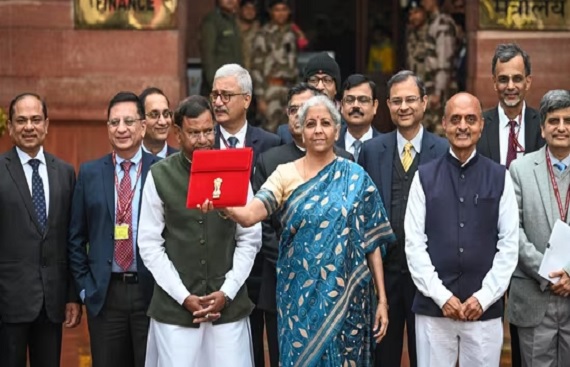Budget 2025: Key Takeaways from Budget 2024
By
siliconindia | Friday, 31 January 2025, 04:01 Hrs

Union Budget 2024, the first of the third term of the National Democratic Alliance (NDA) government led by Prime Minister Narendra Modi, has laid the foundation for India's march towards becoming a developed nation by 2047. The Viksit Bharat mission is a bold plan and the government unveiled key measures for boosting manufacturing, incentivizing job creation, and enhancing social welfare.
Finance Minister Nirmala Sitharaman implemented several tax reforms, some of which gave the taxpayer relief while others added liability. Among those most welcomed by the public is the abolition of angel tax in favor of the investors in the start-ups. On the contrary, the de-indexation of the benefit available on non-moveable property resulted in much flak, as the same had been reduced from the same percentage.
Relief for Salaried Individuals
To promote the new tax regime among the salaried taxpayers, the finance minister introduced following major changes:
- The standard deduction was enhanced to Rs 75,000 from Rs 50,000.
- The family pension deduction has been increased to Rs 25,000 from Rs 15,000.
- Due to the new tax structure, the salaried employees can save up to Rs 17,500 under the new tax regime.
Taxation of Transactions: Income and Expenditure
There were a few changes in the capital gains tax and transaction levies for individual as well as institutional investors:
- Long-term capital gains tax on all assets increased from 10% to 12.5%.
- Exemption limit on capital gains was raised to Rs 1.25 lakh per annum on specific financial assets.
- Short-term capital gains tax on some financial assets was raised from 15% to 20%.
- The securities transaction tax on futures and options increased.
- Proposed to tax share buybacks in the hands of the recipient.
Made Goods and Services Less Costly for Consumers
Recognizing the imperative to reduce costs for consumers, customs duties on important goods and services were reduced as follows:
- Three crucial medicines used by cancer patients are entirely exempted from customs duties.
- Custom duties on mobile phones, chargers, and PCB assemblies cut down from 20% to 15%.
- Gold and silver duties were reduced from 14.35-15% to 6%, and platinum duties from 15.4% to 6.4%.
Job-Launching Incentives
To enhance employment, especially in manufacturing, three new incentive programs were announced:
- Direct benefit transfer to the first-time employees of one month's salary (up to Rs 15,000) in three installments.
- Incentives for the manufacturing sector for providing funds to employers and employees over four years into EPFO.
- Reimbursement of up to Rs 3,000 per month for two years to employers in all sectors for the creation of additional jobs and contribution to EPFO.
Youth Internship Scheme
The existing Youth Emphasis area of internship opportunities for youth professionals was broadly enhanced:
- One crore youth would be provided with internships in 500 top companies over a period of five years.
- Each intern will gain real-world experience for 12 months with a stipend of Rs 5,000 per month and a one-time assistance of Rs 6,000.
Affordable Housing for Workers, Women, and Lower-Income Groups
The budget emphasized housing initiatives to ensure shelter for all, particularly targeting industrial workers and women:
- Rental housing with dormitory-style accommodation will be facilitated through public-private partnerships, backed by viability gap funding and commitments from anchor industries.
- Female workforce participation will be promoted through industry player collaboration for working women's hostels.
- More central assistance was also provided under PM Awas Yojana for urban and rural regions.
- Stamp duty was requested to be reduced uniformly by states; however, for women purchasing the property, an extra reduction would be applied.
Retirement Benefits and Overseas Assets Declaration
The budget introduced retirement savings facilitation and smoothened financial regulation measures:
- More incentives on employer and employee contribution to New Pension Scheme.
- Depenalisation of not reporting overseas movable assets up to the value of Rs 20 lakh, professionals working for multi-national firms
As the nation gets set to hear about Budget 2025, this impact of these 2024 reforms will drive growth in economy and fiscal policy-making in the new year ahead.
